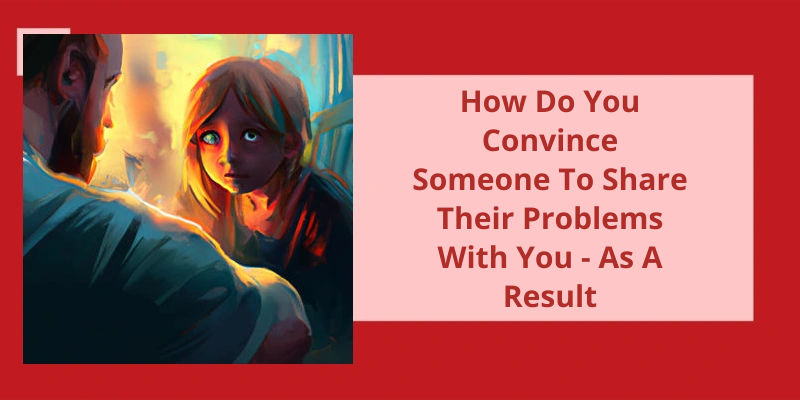Dealing with someone who believes they’re smarter than you can be a challenging and potentially frustrating experience. Whether it's a co-worker, friend, or family member, interacting with someone who thinks they know everything can make you feel belittled, dismissed, or marginalized. However, it's important to remember that there are strategies you can use to navigate these situations in a way that promotes healthy communication and mutual respect. By staying confident in your own abilities, actively listening to the other person, and finding common ground, you can develop a productive relationship and learn from one another.
What to Do When Someone Says They’re Smarter Than You?
Perhaps they’ve a different type of intelligence or skill set that you might not possess. Acknowledge their strengths and move on. It’s important to remember that intelligence isnt the only trait that makes a person valuable. Emotional intelligence, creativity, and perseverance are equally important traits that contribute to success.
If someone is constantly putting you down and belittling you, it might be a good idea to re-evaluate the relationship. A healthy relationship involves mutual respect and support. If someone is making you feel inferior, it’s not worth the stress and negativity.
If you feel insecure about your intelligence, try focusing on your strengths and accomplishments. Self-doubt can be debilitating and can prevent you from reaching your full potential. Remember that everyone has their own unique qualities and contributions. It’s okay to not know everything or make mistakes – thats how we learn and grow.
Instead of feeling competitive or inferior, try to approach situations with a growth mindset. Be open to learning from others and expanding your knowledge. It’s okay to ask questions and seek guidance. Embrace challenges as opportunities for growth rather than threats to your intelligence.
At the end of the day, intelligence is subjective and cant be measured by a single test or metric. Dont get caught up in comparing yourself to others. Focus on your own goals, passions, and growth. Keep challenging yourself and striving for personal excellence. And remember, success comes in many forms, not just academic or intellectual achievements.
It’s important to remember that everyone has different strengths and weaknesses, and intelligence isn’t a measure of someone’s worth. Rather than feeling frustrated or impatient with people who may not understand things as quickly as you do, it’s important to create a safe space for them to ask questions and learn at their own pace. Encouraging questions and offering support can make a world of difference for someone trying to improve their knowledge or skill set.
How Do You Deal With People Less Smarter Than You?
Encouraging questions fosters a culture of learning, where even the most intelligent person can learn something new. Moreover, shaming and belittling people who’re less intelligent than you is counterproductive and may hinder their growth. Instead, you should treat them with respect and dignity, valuing their unique contributions and viewpoints.
Another way to deal with people less smart than you is to simplify complex concepts and ideas. Many things that seem obvious to you may be confusing and overwhelming to others. Therefore, it’s crucial to explain things in simple terms, breaking it down into smaller pieces. This will help them understand and retain the information better, leading to increased confidence and competence.
Furthermore, show patience and understanding towards less intelligent people. They may need extra time and repetition to grasp difficult concepts. Therefore, try to adjust your teaching style to suit their pace and intellect, avoiding overwhelming them with too much information at once.
It’s also essential to avoid becoming too fixated on measuring intelligence by IQ scores or grades. Many people who perform poorly on tests and exams may excel in other areas, such as interpersonal skills, creativity, and problem-solving. Therefore, avoid judging people based only on their academic performance, as this may overlook their unique abilities and strengths.
Lastly, it’s crucial to understand that intelligence isn’t a fixed entity. People can and do improve their intelligence through hard work, persistence, and dedication. Therefore, enhancing peoples access to educational resources and opportunities can go a long way in improving their intelligence levels. Also, be open to learning from them, as they may offer a unique perspective that you may not have considered. Ultimately, dealing with people less smart than you involves compassion, empathy, and a genuine desire to help others grow and improve.
Ego Management: When Dealing With People Less Smart Than You, It Is Necessary to Manage Your Ego and Avoid Coming Off as Arrogant or Dismissive. Self-Reflection, Mindfulness, and Empathy Can Help Mitigate Any Unconscious Biases or Negative Attitudes.
- Practice self-reflection and identify your own biases and negative attitudes towards others.
- Be mindful of your behavior when interacting with people who you perceive as less intelligent than you.
- Try to empathize with others and understand their perspectives before making assumptions or judgments.
- Avoid using condescending language or dismissing others’ opinions.
- Remember that intelligence isn’t the only measure of worth or value in a person.
- Focus on building positive relationships and fostering a collaborative environment.
Source: How can I deal with people who’re less smart than me?..
Conclusion
It’s crucial to avoid letting their arrogance and superiority affect your self-esteem and to maintain confidence in your own abilities and knowledge. Instead of engaging in a power struggle or trying to compete, focus on building a respectful and open-minded dialogue that fosters mutual learning and growth. Remember that intelligence and wisdom come in many different forms, and that true intelligence is demonstrated not by what you know, but by how you use it to connect with and empower others.






